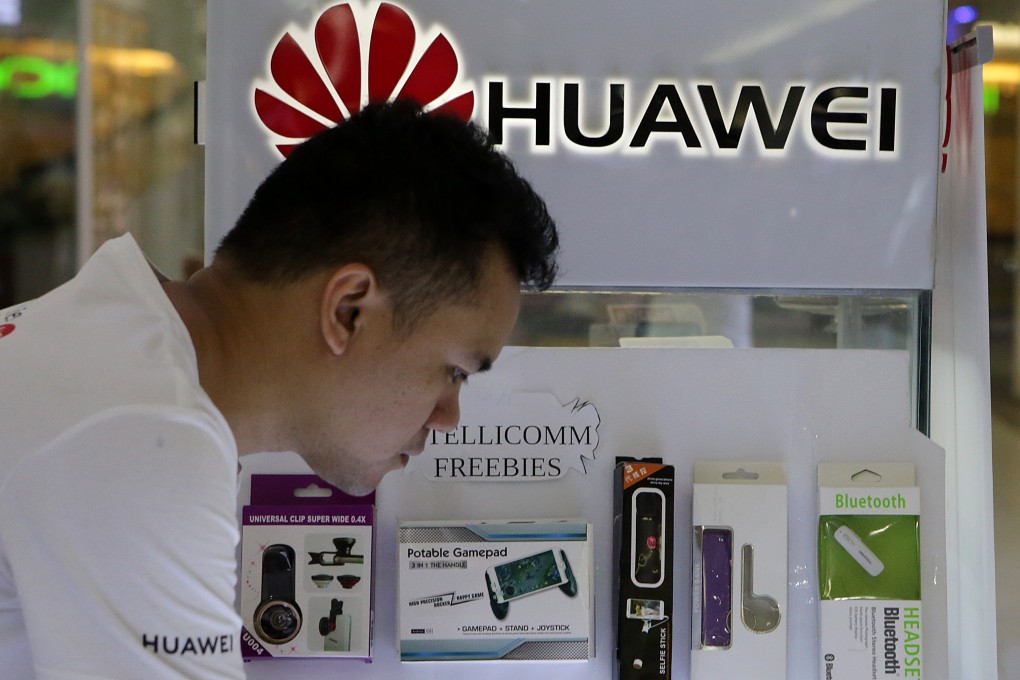Advertisement
How Philippines’ embrace of Huawei reflects China’s growing influence and failure of US pressure tactics
- Philippines – one of the oldest US allies in Asia – is moving ahead with plans to use Huawei equipment in upcoming trials of 5G wireless systems
- Countries are reluctant to exclude Huawei, whose products are considered equal to or better than Western rivals, and can be 30 per cent cheaper
Reading Time:6 minutes
Why you can trust SCMP
0

On the site of a former World War II garrison where the US Army trained local troops – and later firebombed tunnels to drive out occupying Japanese soldiers – the Philippines has built a shining symbol of its modern ambitions, a master-planned commercial district billed as one of the safest in the country.
Watching over Bonifacio Global City – a square-mile oasis of glinting high-rises and tree-lined streets southeast of Manila – are more than 200 high-definition security cameras. They were furnished by a company that has become a target in a new US war: the Chinese telecommunications giant Huawei.
The surveillance network is one example of Huawei’s extensive inroads in Southeast Asia, where it has supplied much of the digital infrastructure and devices that have helped drive a decade of economic expansion: laying undersea cables, building mobile networks, establishing research labs, wiring government offices and commercial hubs, and selling more smartphones than almost any competitor.
Now the US, locked in a trade war with China, is urging countries to cease doing business with Huawei, citing security risks posed by its alleged ties to the Chinese government. But the Philippines – one of the oldest US allies in Asia – has not signed on to the US ban and is moving ahead with plans to use Huawei equipment in upcoming trials of ultra-fast 5G wireless systems and a multi-city surveillance programme far more advanced than that of Bonifacio Global City.
The Philippines’ approach illustrates how the US effort to cripple Huawei “has really fallen flat in Southeast Asia,” said Brian Harding, a fellow at the Centre for Strategic and International Studies in Washington.
It also suggests a further erosion of US influence in a region where its long-time security partners are increasingly swayed by Chinese investment.
“There’s a scepticism of whether the US arguments about the nefarious nature of Huawei and its connections to the Chinese government are actually valid,” Harding said. “And there’s a frustration the US government isn’t bringing a viable alternative to the table.”
With 650 million people – roughly half of them younger than 30 – and an economic output that has nearly doubled in the last decade, Southeast Asia has emerged as an important market for tech companies. It is particularly crucial for Huawei because mature markets such as Japan, Australia and parts of Europe have already heeded Washington’s call to limit dealings with Chinese tech suppliers.
Advertisement